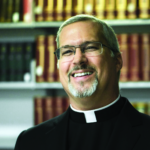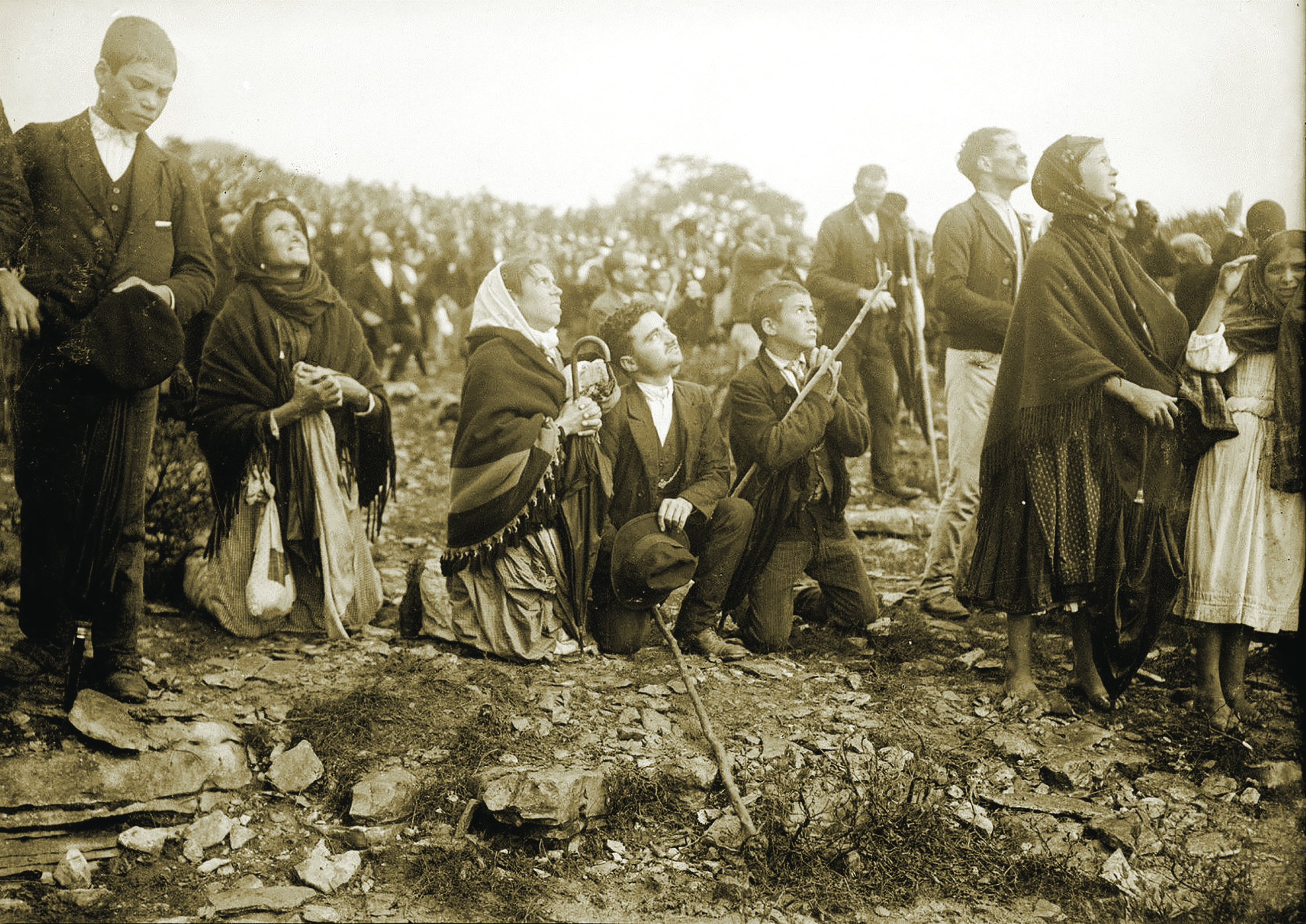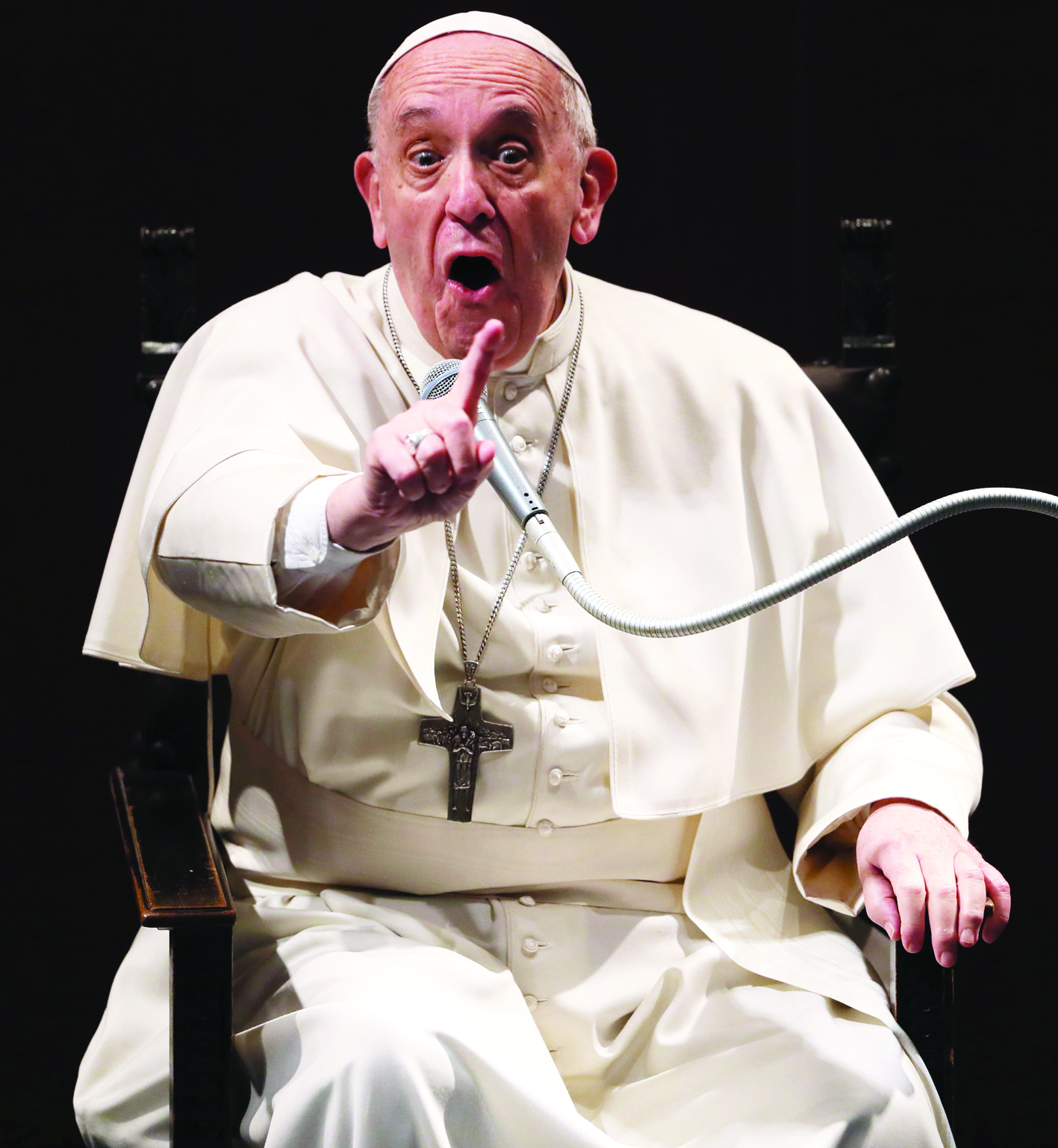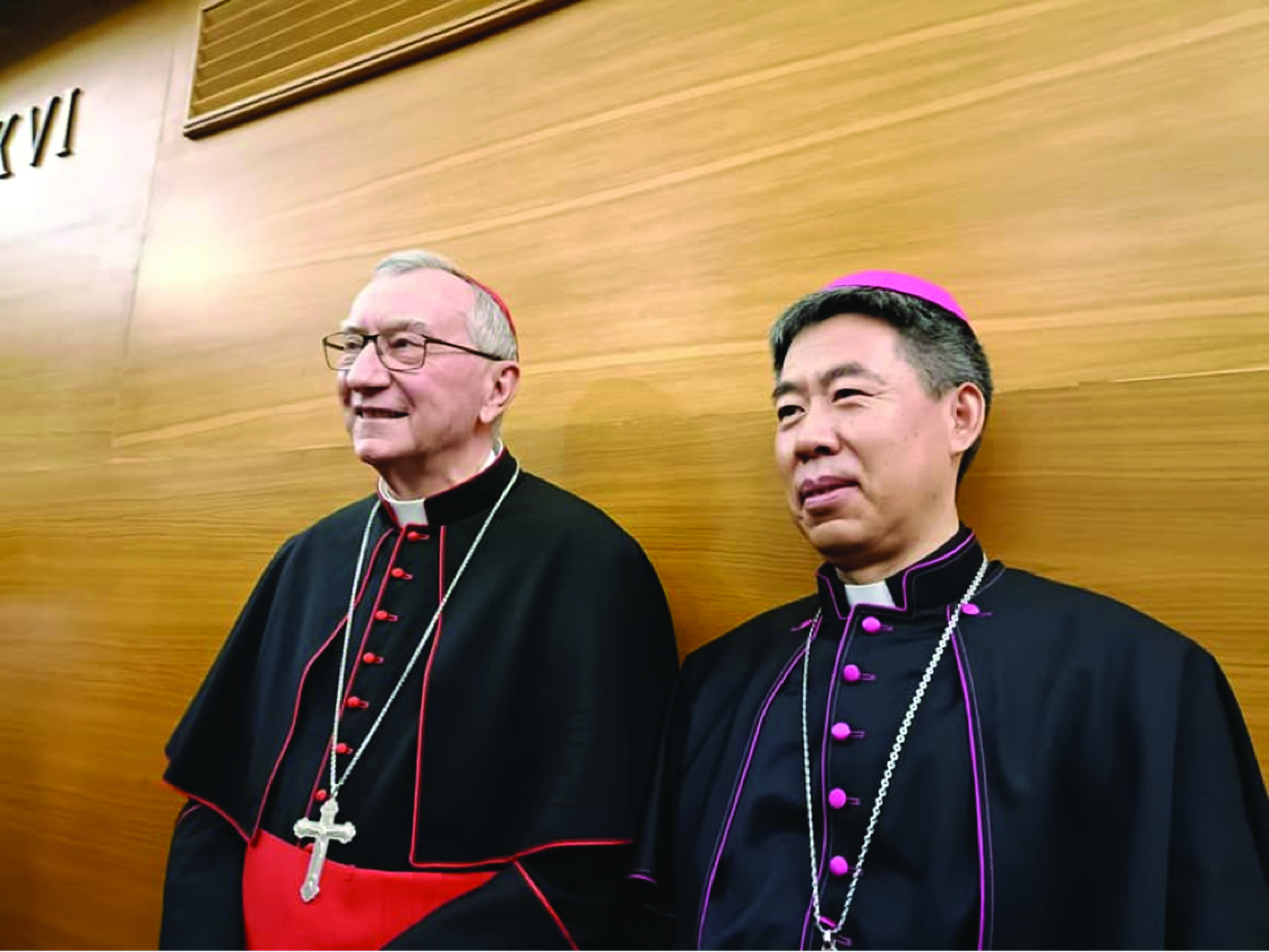An interview with Fr. Philip Larrey, PhD, on how Catholics are grappling with the AI explosion
By ITV staff

 Rev. Philip Larrey, Ph.D., held the Chair of Logic and Epistemology at the Pontifical Lateran University in the Vatican for more than 20 years. He now teaches at the Lynch School of Education and Human Development at Boston College. He has published several books on the effects of the new digital era on society, including Futuro ignoto (Unknown Future) (IF Press) and Connected World (Penguin). His new book, Artificial Humanity, delves into a more philosophical discussion of what AI research means for all of humanity.
Rev. Philip Larrey, Ph.D., held the Chair of Logic and Epistemology at the Pontifical Lateran University in the Vatican for more than 20 years. He now teaches at the Lynch School of Education and Human Development at Boston College. He has published several books on the effects of the new digital era on society, including Futuro ignoto (Unknown Future) (IF Press) and Connected World (Penguin). His new book, Artificial Humanity, delves into a more philosophical discussion of what AI research means for all of humanity.
He is also Chairman of the non-profit foundation Humanity 2.0, which hosts an annual Forum at the Pontifical Academy of Sciences. He spoke with Inside the Vatican on the coming AI explosion and the Pope’s June remarks at the G7 meeting on the subject.
ITV: What exactly is “AI” (artificial intelligence) and how is it different from the computer programs we already use in everyday life?
Fr. Philip Larrey: AI is a series of algorithms which use logical calculations to achieve programmable results. It is based on a Turing machine (using “1”s and “0”s to perform operations), but it goes further in that it mimics what the human intellect can do. The term was coined by John McCarthy back in 1956, when he organized an important conference on the issue at Dartmouth University. In the end, they are computer systems which are very advanced, fast and capable of dealing with huge amounts of data.
The most common application that we are familiar with are the Chat bots, which simulate understanding what we say and write, and respond accordingly. The most impressive application to date is Open AI’s ChatGPT 4o, where the “O” stands for Omni. It’s pretty convincing.
Some predict a future of human emancipation from toil, conflict, disease, etc., when computers figure out the answers to all of humanity’s problems. Is this, at root, the driving force behind the push for AI?
The driving force behind AI is the market motive. AIs will replace many people’s jobs, but not in the near future. Elon Musk has said that he is building an “army” of robots with sophisticated AI in order to help human beings become free from mundane and repetitive chores (as you imply). I am not convinced. I think the main motivation is economic advantages and control over what is going to become a crucial technology on a global basis.
Vladimir Putin has said that whoever controls the most advanced AI systems will control the world. That might sound a little exaggerated, but probably not by much.
Obviously, “deep fake” is a worsening problem — what is real and not real, human and not human… is there any solution? Does AI conflict with a truly Christian anthropology? How do we stay “human”?
Some of my students are actually writing programs with AI to be able to detect “deep fakes.” I think that is amazing: we are going to use AI to combat AI.
The best way to combat deep fakes and fake news is to learn how to think critically, which is precisely what I teach in my courses. This is what philosophy is all about.
Remember that AI is a tool, and it can be used for good or for evil. It depends on us. From an anthropological point of view, there is nothing inherent about AI that goes against human dignity: we are going to have to learn to live with these massive systems and platforms alongside us in our world. People in the field are dealing with this issue which is called “the alignment problem” — making sure that sophisticated AI systems are aligned with the goals of the human race. This is not going to be easy, but at least people in the field are already putting down the groundwork for a successful outcome.
The Church will probably produce some sort of guidelines or a document (the Handbook of the Markkula Center at Santa Clara University as an example). Pope Francis has spoken three times about this subject recently, as well as at the G7 Summit in June.
How can members of the Church bring Catholic philosophical thought to the development of worldwide AI?
There are many activities taking place around the world on this topic. I think that Pope Francis agreed to attend the G7 Summit because he senses that the Catholic perspective is not being taken into consideration as much as it should be. We are a little behind the curve, although I do know that many people in the field are interested in dialoguing with the Church on many issues related to AI and new technologies, especially from a theological perspective.
I have been a part of two recent conferences at the Pontifical Academy of Sciences in the Vatican, led by Cardinal Peter Turkson, about these issues, one on May 23-24, and another on June 4. I think both conferences went very well. We are trying to promote the idea (which Pope Francis talks about) of “Human-centered AI,” or “Person-centered AI” in order to ensure that AI is used to enhance Human Flourishing and not the opposite. Thanks for reaching out to me about these themes! It is a fascinating time to be alive.






Facebook Comments